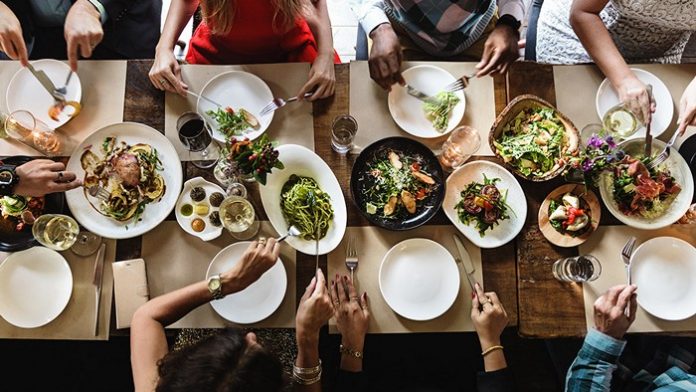People eat more with friends and family than when dining alone, in a phenomena that science describes as ‘social facilitation’.
Previous studies found that those eating with others ate up to 48 percent more food than solo diners and women with obesity eating socially consumed up to 29 percent more than when eating alone.
Researchers at the University of Birmingham in the United Kingdom who evaluated 42 existing studies of research into social dining found that eating ‘socially’ has a powerful effect on increasing food intake relative to dining alone.
Eating with others is more enjoyable and enhanced reward from social eating could increase consumption, said the researchers. Moreover, social norms might ‘permit’ overeating in company but sanction it when eating alone. Providing food also becomes associated with praise and recognition from friends and family, strengthening social bonds.
However, this social facilitation effect on eating was not observed in studies which had looked at food intake amongst people who were not well acquainted. People want to convey positive impressions to strangers. Selecting small portions may provide a means of doing so and this may be why the social facilitation of eating is less pronounced amongst groups of strangers.
Findings from previous research suggest that we often choose what (and how much) to eat based on the type of impression that we want to convey about ourselves. Evidence suggests that this may be particularly pronounced for women eating with men they wish to impress and for people with obesity who wish to avoid being judged for overeating.
Social facilitation can be seen as a natural by-product of social food sharing — a strategy that would have served a critical function in our ancestral environments. This also explains why it is more likely to occur in groups with individuals who are familiar with each other.
















